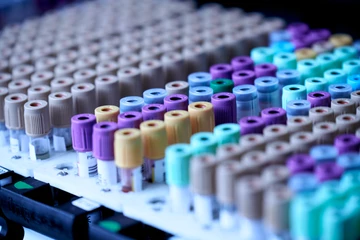Let’s talk about Iodine… It might not be something you have given much thought to, but it can be very important to overall health. According to the American Thyroid Association, up to 30% of the Global population face an iodine deficiency issue. In the United States, approximately 12% of the US population is low in this nutrient, according to the Centers for Disease Control (CDC) (1) Iodine was added to salt in the 1990’s and about 70% of the world’s population has access to iodized salt, including most of the US population.
Although iodizing salt has been a positive change, Iodine deficiency remains a major issue and one that is a bit more complicated than simply consuming iodized salt. In reality, the consumption of Iodine in the US has been declining since the 1980’s.
Symptoms of Iodine deficiency include dry skin, brain fog and memory loss, weight gain, breast and prostate changes, menstrual irregularities, thyroid issues such as goiters, fatigue, constipation, brain damage in children, joint pain, muscle weakness and cold intolerance.
Let’s talk specifically about low iodine levels and breast health. Low levels of Iodine in women have been linked to fibrocystic changes, and even increased risk of breast cancer. (2) Breast tissue is particularly sensitive to low iodine, so it is one of the most affected tissues when deficiency is present. In fact, Japanese woman have historically been known to have the lowest risk of both breast cancer and goiters on their Thyroid. They also have the highest intake of Iodine. If these same women immigrate and change their diets, their risks for both breast cancer and goiters increases (3)
Another organ that is very sensitive to low iodine is the Thyroid. In the absence of enough iodine, the body may have trouble supplying adequate amounts of Thyroid hormone. A typical change that is seen in this instance is the formation of something called a goiter. This can be felt on your Thyroid gland by a medical provider. The Japanese, because they consume diets high in iodine from sea vegetables, have a much lower risk than most other populations of developing goiters affecting their Thyroid glands (3). If the body is attacking it’s Thyroid in an autoimmune fashion (Hashimoto’s Thyroiditis) that person may be low in Iodine, but yet also have a hard time tolerating Iodine at first because Iodine helps displace toxins from the Halide family (Bromine, Chlorine, Flouride) and that can make a person feel ill. It is important to work with a Functional Health Professional if you fall into this category.
So, how would a person know if her Iodine levels are low? The best way to get an idea of whether iodine levels are functionally low is to perform a 24 hour iodine loading test. This involves taking a large amount of Iodine and then collecting urine over 24 hours to measure the amount of iodine being secreted. If the body retains more than 10% of the Iodine taken, that means that the body is taking in the Iodine that was taken in an effort to make up for a deficiency. I believe it is very important to test Iodine levels prior to supplementing with large doses. The dose needed in most cases to make changes to a true deficiency is very high. You would not want to supplement at this level unless you were sure you needed to be taking that amount.
If you are experiencing the health issues mentioned above, Iodine and other nutrient testing might be just what you need to help find the root cause of your symptoms.
If I can be of help to you or someone you know on your health journey, please reach out to me using this link to schedule a FREE health discovery call so we can talk about it!
To your health,
Dr. Jeni


